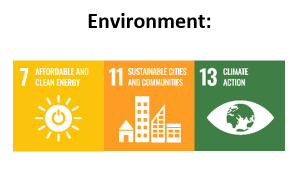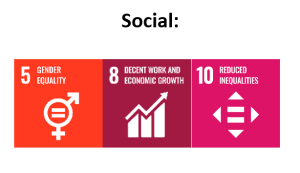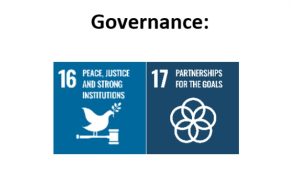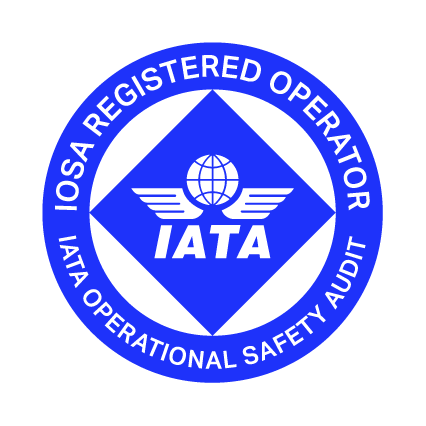Purpose and scope
The establishment of this Statement as a robust reinforcement of our management’s and employees’ unwavering commitment to uphold human rights in a reasonable and lawful manner. Through this Statement, we aim not only to foster a culture of respect and protection of human rights but also to communicate our steadfast dedication to this cause across the Company and its subsidiaries. It stands as a powerful tool in our collective efforts to ensure that human rights remain at the forefront of our values and actions.
For the better understanding of this Statement, key terms are defined:
- Human rights are fundamental entitlements and protections that inherently belong to every individual by virtue of their humanity. These rights are intended to ensure dignity, equality, and freedom for all, regardless of factors such as race, gender, nationality, religion, or socioeconomic status. Human rights provide a framework for promoting and safeguarding the well-being of individuals and communities.
- Violence is the action or omission of the person(s) when another person(s) is subjected to intentional physical, mental, sexual, economic impact related to work, as a result of which the person(s) experiences or may experience non-material or material damage.
- Harassment refers to unwanted conduct which occurs with the purpose, or effect, of violating the dignity of a person, and of creating an intimidating, hostile, humiliating or offensive environment on grounds of sex, race, nationality, citizenship, language, origin, social status, belief, convictions or views, age, sexual orientation, disability, ethnic origin or religion.
- Child labour refers to the employment or engagement of children in work that is harmful to their physical, mental, social, or educational development. It involves children performing work that is often exploitative, hazardous, and interferes with their right to education and a healthy upbringing.
- Modern slavery refers to a range of exploitative practices in which individuals are subjected to various forms of coercion, deception, and abuse, leading to their control and exploitation by others. These practices strip individuals of their freedom, dignity, and basic human rights. Modern slavery encompasses several forms, including such as human trafficking, forced, bonded, or indentured labour.
- Human trafficking involves the recruitment, transportation, transfer, harbouring, or receipt of people through force, deception, or coercion for the purpose of exploitation. This can include sexual exploitation, forced labour, and other forms of involuntary servitude.
- Forced, bonded or indentured labour involve individuals being compelled to work against their will, often through physical or psychological coercion. They are denied the ability to leave their work situation, and their freedom is severely restricted.
- Discrimination refers to the unjust or prejudicial treatment of individuals or groups based on certain characteristics or attributes, such as race, gender, age, religion, nationality, disability, or other protected traits. It involves treating people differently and unfairly, often resulting in negative consequences for the targeted individuals or groups.
- Freedom of association is the right of individuals to come together voluntarily to form associations, unions, or groups without undue interference or restriction from the government or other entities. This right allows workers and individuals to join to collectively voice their concerns, advocate for better working conditions, and protect their rights.
- Collective bargaining refers to the process by which workers, through their chosen representatives (often labour unions), negotiate with employers or management to establish terms and conditions of employment, such as wages, working hours, benefits, and workplace policies.
Fundamental human rights:
We strictly prohibit any form of violence or harassment in the Company through the implementation of our Violence and Harassment Policy, in which we reject any act (or omission) of the Company’s employees aimed at causing physical, social, or psychological harm to another employee or group of employees in order to ensure the psychological safety of the employees at the work environment.
- Child Labour and Modern slavery including Human Trafficking, Forced, Bonded or Indentured Labor
We prohibit and reject all forms of child labour and modern slavery, including but not limited to human trafficking, forced, bonded, or indentured labour, in compliance with all global, international, and local laws and regulations. This Statement is intended to reinforce and inform our message against any illegal practices that carry the risk of any form of child labour and modern slavery practices. Indeed, our Suppliers’ Code of Conduct holds all our suppliers, including subcontractors who conduct business with any subsidiary or division of the Company, to the same high standards of responsible business practices and ethical behaviour. The Suppliers’ Code of Conduct is based on our corporate values and adheres to the principles of the UN Global Compact.
Because we believe in the value of a diverse and inclusive team, we guarantee equal opportunities to all employees of our Company without discrimination of any kind based on age, race, colour, gender, disability, sexual orientation, parental status, religion, national or social origin, pregnancy, medical condition, or any other status in our work environment.
- Freedom of association and collective bargaining
We respect the right to trade-union freedom, freedom of association, and the right to collective bargaining of our employees in accordance with the local legal requirements and without any form of retaliation, intimidation, or harassment.
We encourage open dialogue within our team, as we believe that communication between team members and their managers is essential to the good performance of the Company. We also provide whistleblowing program (Trust Line) to provide employees with appropriate and anonymous access to report potential wrongdoing.
We provide fair working conditions for all employees, offering them various benefits and competitive remuneration in line with the market.
The health and safety of employees is also extremely relevant and important for us. Thus, we are committed and focused on the Company’s human value by ensuring a respectful and safe working environment for our employees.
We respect and protect the privacy and security of personal information of our employees, suppliers, providers and customers in accordance with our Data Protection Policy. We comply with applicable laws and standards relating to personal data protection.
To respect the cultures, customs and values of the people in communities in which we operate. To contribute, within the scope of our capabilities, to promote the fulfilment of human rights through improving economic, environmental and social conditions and serve as a positive influence in communities in which we operate. To have open dialogue with stakeholders and participate in community engagement activities.
- Environmental footprint and related human rights issues
We recognise that a safe, clean, and sustainable environment is integral to the full enjoyment of human rights. Protecting the environment is therefore fundamental to protecting and respecting human rights. Throughout our Environmental Management System (EMS) Policy, which serves as a framework for setting and achieving our environmental objectives and targets, we are committed to be responsible with the environment.
We acknowledge the importance of addressing climate change and will work to minimize our relative greenhouse gas emissions. We commit to set targets to minimize our carbon footprint, promote energy efficiency, and explore renewable energy sources. We are also committed to promote the efficient use of natural resources, to implement measures to conserve resources and explore opportunities for recycling and reusing materials whenever possible. In addition to this, we develop initiatives to encourage our colleagues to adopt environmentally responsible habits.
Monitoring, assessment, and grievance mechanisms
We monitor the effectiveness of our approach to human rights in various ways, including a periodic review of our adherence to our policies and standards, and ongoing dialogue with stakeholders. To take action and implement this Statement human rights are integrated into our impact and risk assessments that seek, among other things, to achieve positive impact for all stakeholders, and all other regular business activities.
We encourage and allow employees, suppliers and other stakeholders disclose any suspected or actual violation of human rights through our whistleblowing program (Trust Line), which provides transparency and accountability across the Company, as well as ensuring and reinforcing a healthy and ethical workplace. Action will be taken to investigate any reported violations and based on the outcome of the investigation appropriate remediation measures will be taken. We have zero tolerance policy for any form of retaliation or discrimination against whistleblowers.
We are committed to being as open and transparent as possible about the way we do business. We communicate proactively with stakeholders and offer different channels for them to engage with us. We seek to understand their perspective on our products and services, our business performance, our role in society and other topics. This input is used in both defining our strategy and our decision-making processes and tells us how we can best align the interests of our businesses with the needs and expectations of our stakeholders.
Governance
The governance of this Policy engages the highest levels of the Company’s leadership and aims to involve all the Employees of the Company at certain extent. The key levels of human rights governance within the Company include:
- The Chief Executive Officer of the Company (regardless of the exact position occupied) (the CEO). The CEO is responsible for overseeing the Human Rights Statement Policy. The CEO upon his/her sole discretion and in the manner decided by the CEO annually reviews and assesses progress against this Policy.
- The Board of the Company (the Board). The Human Rights Statement Policy and any related initiatives and targets to be established within the Company shall be approved by the Board. The Board shall be informed by the CEO, at his/her sole discretion and in the manner decided by the CEO but always in accordance with applicable legal requirements. The Board is expected to assess the provided information for the purpose of ensuring and encouraging further progress of the Company with regard to its human rights and, if deemed necessary, its improvement.
- ESG Designated Person (despite of its exact name from time to time). The ESG Designated Person is responsible for:
- annual review of the Statement and initiation of amendments thereto, for the purpose for ensuring that it is focused on value-creation and is in line with applicable legal regulation, aviation business and global realities;
- monitoring its implementation, assessing the degree of compliance thereto;
- promoting the dissemination of the Statement by creating the foundations of a protection and respect of human rights culture within the Company.
- Employees. The Employees of the Company shall at all times support the implementation of protection and respect of human rights management system and related initiatives in their daily work and dedicate their reasonable efforts to make continuous progress.
Approval
The Board of the Company has approved this Statement and is responsible for the ongoing development of this Statement and Company’s overall commitment to respect human rights.
This Statement will be reviewed every 2 (two) years, and revised, if necessary, to continue to ensure its relevance in the course of time.
Date of Last Update: 5 April 2024



